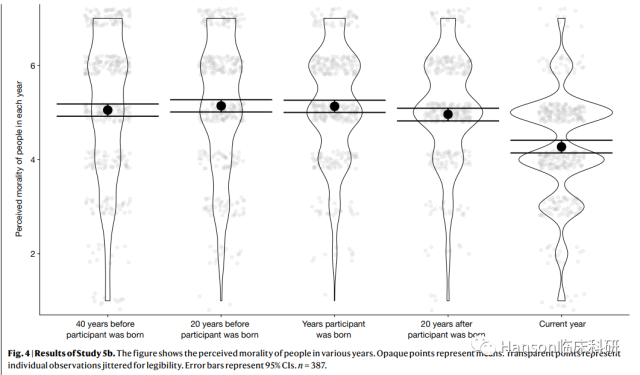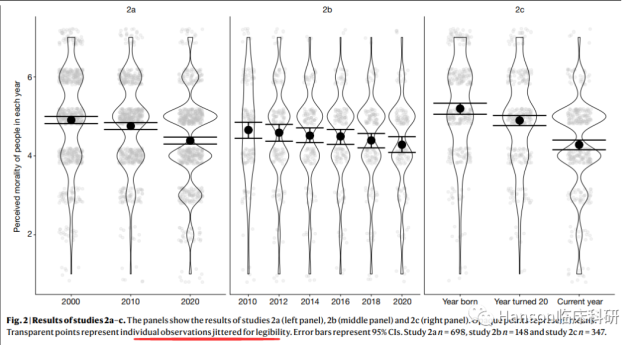Negative memories fading faster causes human morality declining?
- Why Botulinum Toxin Reigns as One of the Deadliest Poisons?
- FDA Approves Pfizer’s One-Time Gene Therapy for Hemophilia B: $3.5 Million per Dose
- Aspirin: Study Finds Greater Benefits for These Colorectal Cancer Patients
- Cancer Can Occur Without Genetic Mutations?
- Statins Lower Blood Lipids: How Long is a Course?
- Warning: Smartwatch Blood Sugar Measurement Deemed Dangerous
Negative memories fading faster causes human morality declining?
- Red Yeast Rice Scare Grips Japan: Over 114 Hospitalized and 5 Deaths
- Long COVID Brain Fog: Blood-Brain Barrier Damage and Persistent Inflammation
- FDA has mandated a top-level black box warning for all marketed CAR-T therapies
- Can people with high blood pressure eat peanuts?
- What is the difference between dopamine and dobutamine?
- How long can the patient live after heart stent surgery?
Negative memories fading faster causes human morality declining?
Is human morality declining? The paper published by Science turned out to be the result!
Adam Mastroianni has been plagued by the common narrative that people become less kind, disrespectful, and untrustworthy over time.
In order to study this problem in depth, he made an in-depth study of it in his doctoral dissertation.
Now, Mastroianni and his colleagues have drawn on decades of survey results and other data to find that over the past 70 years, people around the world have generally felt that moral standards have declined .
But the data also show that individuals’ moral assessments of their contemporaries remained largely unchanged during this period .
Mastroianni, now a psychologist at Columbia University, and his co-author Daniel Gilbert , a psychologist at Harvard, show that the perception of moral decline is an illusion .
The results of this study were published in the journal Science on June 7, 2023 [1].
Is moral character declining?
To test the common view that morality is declining, Mastroianni and Gilbert analyzed U.S. surveys on moral values conducted between 1949 and 2019. In about 84% of the survey questions, the majority of participants reported that morality had declined.
Similar results were seen in surveys conducted in 59 other countries.
The researchers, also conducting a series of their own surveys in 2020, found that U.S. participants said people were less “kind, honest, friendly, good” now than they were in the past, such as the year the participants were born. Perceptions of moral decline are shared by people of all political affiliations, races, genders, ages, and education levels.
People believe that morality is declining.
They have held this view for at least 70 years, and attribute this decline to two factors: the decline in the morality of individuals as they age; and the gradual decline in morality as future generations emerge .

The researchers also looked at surveys that asked people to report on their current moral status and those of their contemporaries.
The authors selected surveys that had been conducted at least twice, with an interval of at least ten years, so that answers could be compared over time. These include questions such as “How would you rate the state of moral values in this country today?”
If morality did decline over time, people would be expected to rate their peers more negatively than those who had taken the same survey earlier.
But the data showed that participants’ moral assessments of their contemporaries did not change over time ; suggesting that the perception of moral decline is an illusion.
For Mastroianni, this means that the perception of moral decline is wrong, or at least “it’s hard to find any evidence that such a moral decline actually happened”.

Melissa Wheeler, an ethics researcher at Swinburne University of Technology in Melbourne, Australia, praised the data, noting that it included “multiple decades, responses to millions of archival data points” and a robust set of experiments validating the findings. .
Lianne Young, a psychologist and director of the Ethics Lab at Boston College in Massachusetts, said she was surprised by the perceived decline in morality among all types of U.S. residents.
“Pessimism about human nature is quite common when people make judgments about people who are not their own. Interestingly, this bias seems to be more common and does not seem to stem from intergroup bias.”
So, why do people think that human morality is declining?
The authors speculate that this may be related to factors such as memory bias ; negative memories fade faster than positive ones .
We live in a world that seems fraught with a moral crisis, with widespread belief that morality is in decline; however, this study, published in Science , reminds us that this common perception is an illusion.
The key to this illusion may be related to factors such as memory bias; negative memories fade faster than positive memories.
references
1. https://www.nature.com/articles/s41586-023-06137-x
Negative memories fading faster causes human morality declining?
(source:internet, reference only)
Disclaimer of medicaltrend.org
Important Note: The information provided is for informational purposes only and should not be considered as medical advice.



